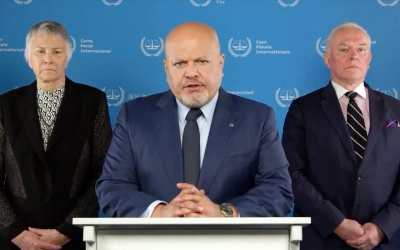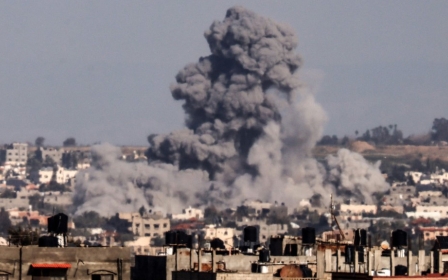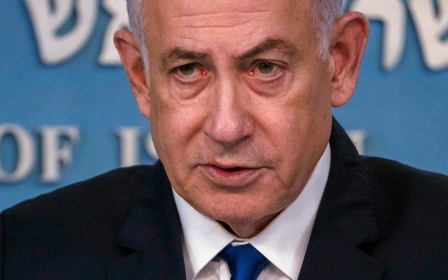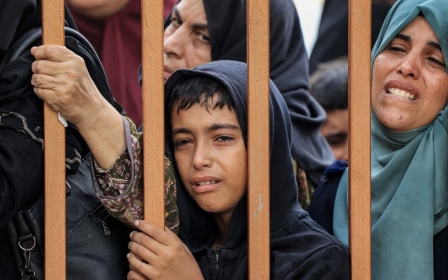Gaza: Civil ICC case against Ursula von der Leyen raises stakes on genocide complicity
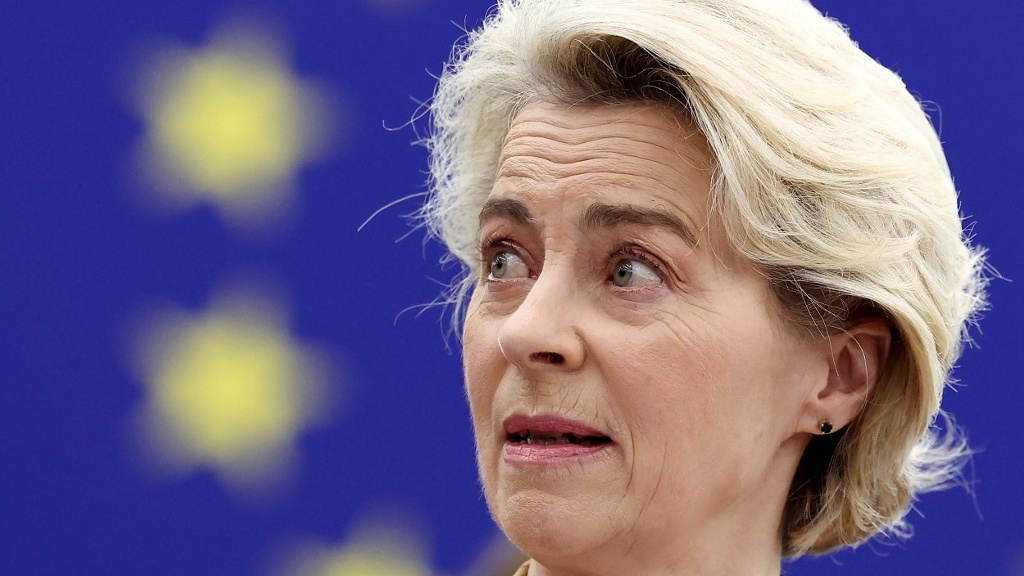
In the nearly 80 years that the UN has existed, never before has such a range of law-oriented approaches in international tribunals been undertaken in attempts, so far futile, to halt a genocide, which continues to ravage the lives of 2.3 million Palestinians in Gaza.
Not only has the International Court of Justice (ICJ) issued three interim orders since January that require Israel to halt its “plausible genocide”, but the state has also been ordered to stop interfering with the delivery of emergency aid to starving Palestinians.
Also during this period, the chief prosecutor of the International Criminal Court (ICC), Karim Khan, recommended arrest warrants against Israeli and Hamas leaders.
This upsurge in international judicial activity comes amid frustrations at the UN over failed attempts to impose a ceasefire, as Israeli warfare leads to increasingly precarious conditions in Gaza. The US has used its veto at the UN Security Council to insulate its criminal ally from UN pressures.
Israel has reacted to the latest developments with fury and defiance, enjoying US support more discreetly expressed.
New MEE newsletter: Jerusalem Dispatch
Sign up to get the latest insights and analysis on Israel-Palestine, alongside Turkey Unpacked and other MEE newsletters
Israeli Prime Minister Benjamin Netanyahu has repeatedly contended that in light of the Holocaust, Israel can never be charged with the crime of genocide; that since 7 October, Israel has been exercising its right to self-defence against a terrorist attack by Hamas; and that the proposed ICC arrest warrants, if issued, would undermine the ability of democracies to defend themselves in the future.
He has even, with some success, called upon the US government and other nations supportive of Israel to exert pressure on the ICC to reject the prosecutor’s request.
Maximising pressure
Amid all this legal controversy, it is becoming evident that Israel cares deeply about being criminally branded by these tribunals that it derides as having no competence to entertain complaints about its behaviour.
This apparent contradiction suggests that Israel realises that its refusal to comply with the rulings of these international tribunals will not erase their influence throughout civil society, making it important to maximise pressure to discourage such ICJ/ICC assessments of Israel’s alleged criminal behaviour in Gaza, especially with regards to genocide, the crime of crimes.
Follow Middle East Eye's live coverage of the Israel-Palestine war
Against this backdrop, the Geneva International Peace Research Institute (GIPRI) has added a further dimension of legal complexity, calling on the ICC late last month to investigate the president of the European Commission, Ursula von der Leyen, for alleged “complicity in war crimes and genocide committed by Israel”.
The Rome Statute of 2002, which sets forth the treaty framework that shapes the work of the ICC, gives NGOs and individuals a right under Article 15 to bring evidence of criminality to the attention of the prosecutor, who can determine whether the evidence offered is sufficiently compelling to warrant an investigation.
However the ICC responds to this GIPRI initiative, it is a further sign that civil society is becoming a political actor on the global stage
Unlike the ICJ - which is concerned with resolving legal disputes between sovereign states, functioning as the judicial arm of the UN - the ICC has the authority to investigate, arrest, indict, prosecute and punish individuals found guilty by a panel of judges of an international crime.
All UN members are automatically parties to the statute governing the ICJ, while states must act affirmatively to become parties to the ICC and are under no obligation to do so - although 124 states have done so, including the democracies of Western Europe and Palestine (treated as a state for this purpose).
Of relevance is the fact that neither Israel nor the US have become parties to the Rome Statute, nor have Russia, China, India and a few others. The US, nevertheless, had no hesitancy about pushing the ICC to indict Russian President Vladimir Putin after the 2022 invasion of Ukraine, while opposing its applicability to Israel in the Gaza situation on the grounds of its non-party status. (The Rome Statute gives the ICC authority to act against individuals who commit crimes in the territory of any party to the treaty, which in this case is Palestine.)
Aiding and abetting
The GIPRI initiative is intriguing because it concerns the relatively neglected question of complicity, or aiding and abetting the commission of an international crime. This issue is based on the legal duty embedded in the Genocide Convention, and on the Rome Statute, which criminalises aiding and abetting crimes in violation of international humanitarian law.
Nicaragua initiated such a complaint at the ICJ against Germany, seeking an emergency order to cease activity that could plausibly be found to be genocide. The main allegation against Germany was that it provided Israel with military weaponry instrumental to Israel’s genocidal conduct.
In April, the ICJ rejected Nicaragua’s request by a 15-1 vote, saying the circumstances did not justify an emergency order. But the court also rejected Germany’s effort to have Nicaragua’s complaint on complicity dismissed, which means that the ICJ will in due course hear arguments on the merits of the underlying contention from both sides, and eventually reach a substantive decision.
In contrast, the GIPRI initiative came in the form of a statement delivered to the ICC prosecutor in May, endorsed by various international law experts, including myself.
The GIPRI statement is also based on a theory of criminal complicity and aiding and abetting, but the target is necessarily an individual, Von der Leyen, rather than a state. GIPRI alleges that the European Commission’s support “has had a substantial effect on Israel’s commission and continuation of crimes, including genocide”.
This support, GIPRI notes, has consisted of political backing, military materials, and failure to take reasonable steps to prevent genocide.
Whatever becomes of the GIPRI initiative, it illustrates the breadth of the ICC’s potential, and exhibits an effort of civil society to invoke international law, given the failure of the UN or the inter-governmental system to prevent and punish such a transparent genocide.
Along with such solidarity moves as the boycott, divestment and sanctions (BDS) campaign and university protests, especially in the US, civil society is showing itself to be a political actor that even Israel understands it cannot ignore if it has any hope of avoiding long-term pariah status.
However the ICC responds to this GIPRI initiative, it is a further sign that civil society is becoming a political actor on the global stage.
The views expressed in this article belong to the author and do not necessarily reflect the editorial policy of Middle East Eye.
Middle East Eye delivers independent and unrivalled coverage and analysis of the Middle East, North Africa and beyond. To learn more about republishing this content and the associated fees, please fill out this form. More about MEE can be found here.



